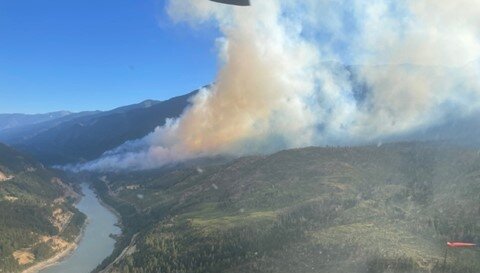Lytton BC: From Ashes to Hope – A Community’s Resilience

Introduction
Lytton, British Columbia, is a small village that has recently faced overwhelming challenges due to devastating wildfires. Located at the confluence of the Fraser and Thompson Rivers, Lytton is not only an important historical site but also a community in the process of rebuilding and recovery. The events of the summer of 2021, when the village was largely destroyed, have brought to light the resilience and spirit of its inhabitants. As recovery efforts continue, Lytton represents a profound narrative of hope and determination in the face of adversity, making it a significant topic for discussions on climate change and community recovery.
Wildfire Impact
In June 2021, Lytton experienced a record-high temperature of 49.6°C, which contributed to one of the biggest wildfires in Canadian history. The fire swept through the village on June 30, leaving approximately 90% of the local infrastructure in ruins, including homes, businesses, and critical services. In the wake of the disaster, residents were evacuated, and the community became a stark reminder of the growing threats posed by climate change.
Community Response and Recovery Efforts
Since the fires, residents of Lytton have united in their efforts to recover and rebuild. Various governmental and non-governmental organizations have collaborated to provide assistance in the form of financial support, temporary housing, and mental health services. The provincial government has allocated funds specifically aimed at rebuilding essential services, including schools and healthcare facilities.
Moreover, several local initiatives have emerged, such as community fundraising events and volunteer groups dedicated to restoration efforts. One notable initiative is the “Lytton Recovery Fund,” which aims to provide direct aid to those affected by the fires. Local businesses are also rallying to support one another, demonstrating a strong sense of solidarity and resilience.
Looking Ahead
As Lytton looks towards the future, the community’s resilience will be instrumental in shaping its recovery trajectory. The process of rebuilding will involve not only restoring the physical infrastructure but also re-establishing a sense of community and belonging among residents. Future development plans emphasize sustainable practices to mitigate the risks of future wildfires and climate impacts.
Conclusion
The journey of Lytton BC serves as a powerful reminder of the effects of climate change on local communities and the importance of preparedness and resilience. As recovery efforts gain momentum, the village stands poised to emerge stronger, showcasing the indomitable human spirit. For readers observing Lytton’s journey, the developments in this community may offer important perspectives on the ongoing narratives of recovery and the urgent need for proactive measures against climate change implications across Canada.


